Places where there are frequent power outages or unavailability of utility grid, an off grid solar power system is one of the options to power your home. In this article we will walk through the components of solar off grid system, it’s working, it’s cost and also look at its advantages and disadvantages.
Off grid solar system as the name suggests is a standalone solar system not connected to the electricity grid. In an off grid solar system the energy generated by solar panels is stored in the batteries, whenever there is power requirement electricity is pulled from the batteries to power critical loads.
At times diesel generator is used along with off grid solar system to recharge the batteries, so even if there is no sun for couple of days you can still power all your critical loads. This is known as hybrid system.
What is Solar Off Grid System?
As the name suggests solar off grid system is a standalone solar system which is not connected to the electricity grid.
In an off grid solar system the energy generated by solar panels is stored in the batteries, whenever there is power requirement electricity is pulled from the batteries to power critical loads.
The process of electricity generation, conversion and storage requires quite a lot of components, let’s find out.
Components of a solar off grid system:
Since off grid solar system is not connected to the grid more components are needed in comparison to a solar rooftop on grid system.
- Solar Panels: Solar panels are used to convert sunlight incident on it into DC electricity.
- Solar Inverter: Solar inverter converts the DC electricity coming from the solar panels into AC electricity which is used to power appliances.
- Charge Controller: A charge controller (charge regulator) allows to limit the flow of current to the battery and prevents the batteries from overcharging, which can affect the life of the battery. Charge controller also helps to prevent deep discharging of batteries.
- Batteries: Batteries are used to store the power generated by solar panels, this power is drawn at night or time when there is no sun.
- Diesel Generator: Diesel generator (D.G) a.k.a gen-set is used as a backup to give you power when your solar batteries have completely drained and you need power. D.G should be big enough to power your appliances and recharge your solar batteries.
Apart from these there are many other components that are used in an off grid solar system like distribution boxes, cables, mounting structure, safety switches, earthing rods and more.
How solar off grid system Works?
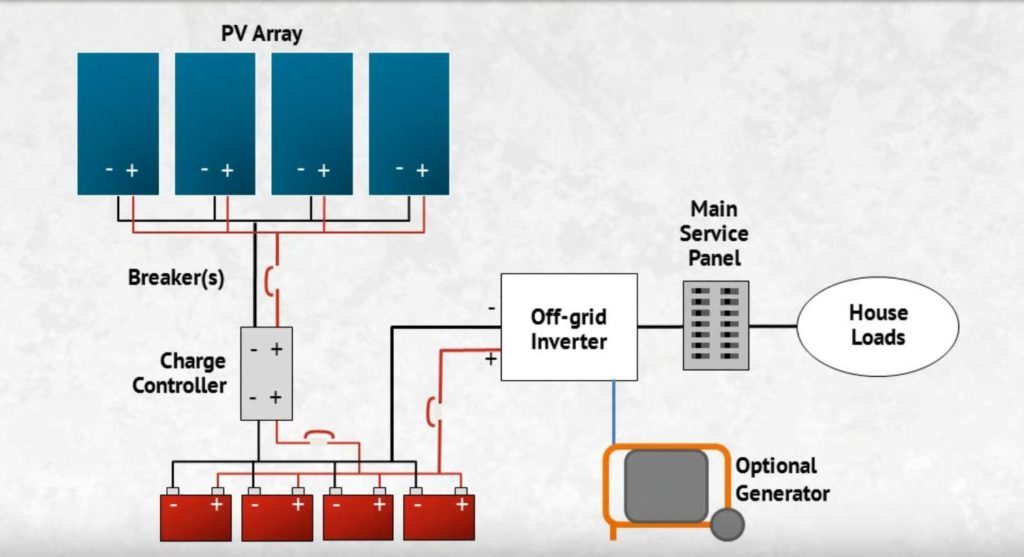
When the sun is shining, solar panels convert the sunlight incident on it into DC electricity, this DC electricity is fed into the solar batteries before passing through a charge controller which controls the current going into the battery and prevents it from over charging.
From batteries DC electricity goes into off grid solar inverter that converts DC electricity into AC electricity, from inverter the AC electricity is fed in the service panel which is used to power your appliance. If you are using a diesel generator (D.G) as a backup then your D.G is also connected to the solar inverter.
Solar System Working in various scenarios:
- When sun is shining: When the sun is shining your solar will be generating electricity and whatever is your live requirement your will use it and the rest of electricity will be stored in the batteries. If the batteries are completely charged the charge controller will cut off the batteries to prevent it from over charging.
- At night: At night since there is no sun, there will be no power generation from solar panels. Whatever power you have stored during the day in the batteries it will be used at night and if your batteries are drained out then your diesel generator kicks in.
- During heavy rain: If there is cloud cover or heavy rain for 2 days then your batteries should have enough power stored in them to run basic appliances for 2 days. Most solar panels only generate 10 % – 20 % of their optimum generation in heavy rain which won’t charge your batteries. Other option is to buy a diesel generator and use it as backup for worst case scenario. Know more.
Advantage of solar off grid system:
Solar off grid system being a standalone system is a boon for places where there is no grid connectivity. You can power all your critical loads without the need of any electricity provider.
- If there is no grid connectivity in your area you can still power your critical loads by using an off grid solar system.
- Complete independence from external energy supply and electricity costs.
- Your system can be expanded on a modular basis and complemented by storage at any time.
- You’ll never again have to give the utility company a slice of your monthly paycheck after you go off-grid with solar power.(In solar on grid system you still get electricity bill).
Disadvantage of solar off grid system:
Off grid solar system has more disadvantage than advantages for majority of the users, the reason why I say this is it is designed for places where there are frequent power cuts or no grid connectivity at all. If you live in a city where there is electricity 24 X 7 then this system won’t make sense to you. Here’s why,
- You cannot run all your appliances on your batteries since the cost of power storage will be very high.
- Overall cost of an off grid solar system is 2 – 3 times more than of same size grid tied solar system.
- Reliability of power is less, during winter or rainy season when sun is not out for long time you might need a diesel generator to charge your batteries, which will increase the cost.
- High maintenance cost because of battery storage. No matter what battery you use you’ll have to change it in every 3 – 5 years which is quite expensive.
- You have to use your power miserly as there is always risk of running out of stored power.
Cost of solar off grid system:
Solar off grid system are more expensive than solar on grid system due to the addition of batteries which are used to store power.
Every year MNRE comes up with a list of benchmark cost for installation of off grid solar system in India.
You can check the MNRE benchmark cost for 2019-2020 in the following link: http://164.100.77.194/img/documents/uploads/b7bdf89068004e58b146f8e31095d34a.pdf
Here is a short summary of the MNRE benchmark cost for 2019-2020.
MNRE Benchmark cost for Solar Off Grid System up to 10 kW:
- 1 hour backup Rs 62,000/kW – Rs 68,000/kW.
- 3 hour backup Rs 74,000/kW – Rs 81,000/kW.
- 6 hour backup Rs 94,000/kW – Rs 1,03,000/kW.
MNRE Benchmark Cost Fir Solar Off Grid System above 10 kW up to 25 kW:
- 1 hour backup Rs 55,000/kW – Rs 60,000/kW.
- 3 hour backup Rs 66,000/kW – Rs 72,000/kW.
- 6 hour backup Rs 84,000/kW – Rs 92,000/kW.
Note: These are prices given by MNRE for a standard type of installation with standard equipment’s, if your solar panels are installed at high elevation, quality of equipment used is top notch then the prices will go up by Rs 5,000/kW –Rs 10,000/kW.
When should you opt for solar off grid system:
Living completely off grid is not everyone’s cup of tea. You have to use your appliances wisely and live with a fear that your batteries might drain and you will have to spend night in blackout.
However if you properly size your system and also have a backup power source like DG then you can live off the grid but that will cost you quite a lot of money.
- If you live in a deserted place where there is no grid connectivity then you have no choice but to go with solar off grid system.
- If you are willing to make sacrifice and use your house appliances miserly then go this system.
- If shelling some extra money is not an issue with you then go ahead and install this system.
- If there are frequent power cuts in your locality and there is provision of solar net metering then I would say you should go with it. Solar on grid system is affordable, requires negligible maintenance and there is no fear of losing power.
Let me make it clear I am not against solar off grid system but there is a time and place to use it.
I live in Mumbai, India here I have electricity 24 X 7 throughout the year, if I plan to install an off grid solar in my house then it will be a foolish decision as a grid tied solar system will be good for me.
However if I live in rural part of India where I get electricity for 5 hours in a day then installing an off grid solar system makes total sense even if the cost is high since the benefits I’ll get from it will outperform the expenditure.
All this time I am praising solar on grid system, but what exactly is it, let’s find out.
What is Solar On Grid System?
Solar on grid system is a grid tied system where you are installing solar system parallel to your existing electricity grid, so after going solar you will be having two sources of electricity one is your electricity provider and second is solar.
When the sun is shining during the day time you will use electricity from your solar panels to run your appliances and the surplus energy will be fed in the utility grid (export), but when the sun is not shining (at night and during monsoon) you will pull electricity from the utility grid (import) the same way you do before going solar.
Hence after installing an on grid solar system you will get electricity bill only for the excess units that you are borrowing from the grid (import – export).
This is a battery free system which makes the upfront investment less and maintenance almost negligible. Solar on grid system is best for places which don’t get frequent power cuts.
Conclusion:
Solar off grid system is a standalone system that stores the electricity generated during day in the batteries for night use. At times a diesel generator is used as a backup to to charge the batteries if in case sun is not out for few days.
Off grid solar system is ideal for people who live in areas where there is no utility grid facility, if your area has a utility grid and power outage is less frequent then you should opt for a grid tied solar system.
If you like the article then please share it on WhatsApp, facebook, reddit and anywhere and everywhere else. Thank you.
References:
You can check these website to learn more.
- https://mnre.gov.in
- http://164.100.77.194/img/documents/uploads/b7bdf89068004e58b146f8e31095d34a.pdf
- https://www.mahaurja.com/meda/
- solar panels pricing
- https://seci.co.in/


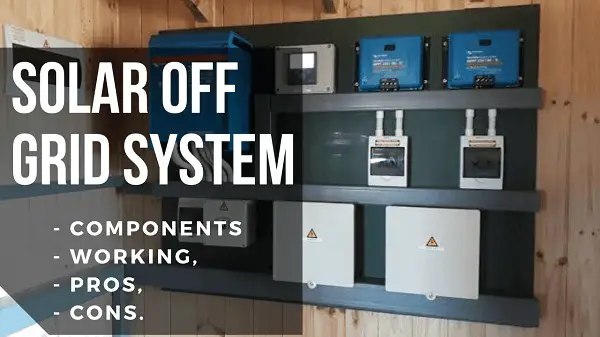
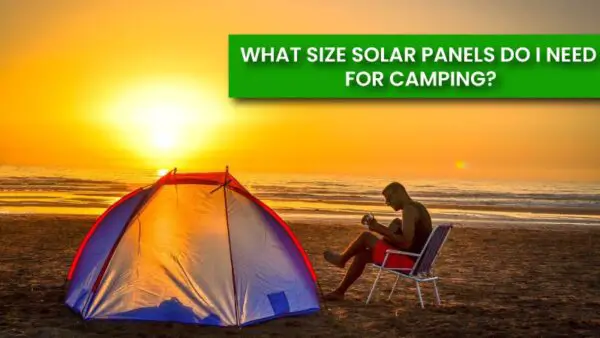
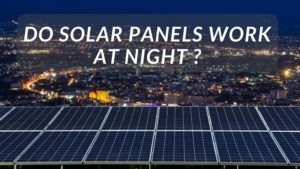
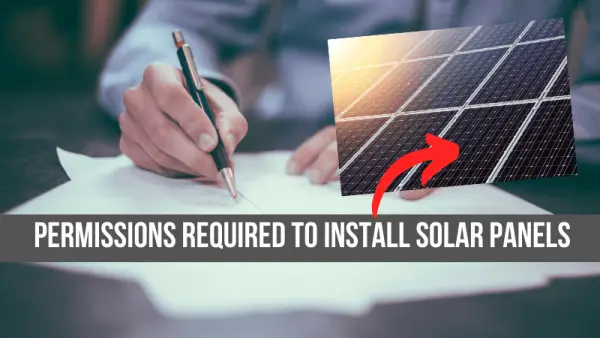
It’s good to see that people are interested in clean energy keep up with your work 👍
Thanks Ataur Khan